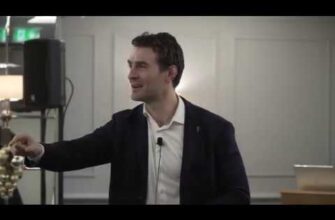The following is from guest writer, Ed Russo.
Ignorance can be observed in all areas of life. When encountering these ignorant individuals, our first instinct is typically to dismiss, ostracize, or ignore them. What we don’t consider is that by not addressing it, we are allowing the ignorance to remain. Discussing the topic, on the other hand, can enlighten an uninformed person.
Comedian Bill Burr puts a premium on ignorance. He recognizes that in many cases, ignorant statements become hot-button issues and quickly spiral out of control. The most public examples can cost someone their livelihood. On his Monday Morning Podcast, Bill suggested taking this occasion to have dialogue and create an environment for change. By allowing people to make ignorant statements…
Contents
- …it’s a great opportunity to sit down with that guy and then watch the guy, hopefully honestly, go through a journey…Sit down and talk to somebody…instead of pushing their face in the mud.
- I understand why people don’t want to hear it on television but you’re not helping the problem. What you’re doing when you eliminate these words… you’re just learning ‘don’t say this’ and ‘don’t say that.’…You can safely get across the minefield without blowing yourself up while you still think all that ignorant s–t… It doesn’t change anything that’s in your heart. That’s all cerebral. These are good words, these are bad words. And you still have all of that awful s–t in your heart.
- A lack of knowledge in any field can be a fantastic catalyst for learning. If I have the opportunity to work on a project that involves a subject I know nothing about, I jump at it! It’s a perfect chance to fill in a few of my mental chasms… To be an effective “clueless” designer, you need the self-confidence to learn quickly and proficiently enough to accomplish the given task. You need an almost insatiable thirst to learn and improve. Most importantly, you need to feel comfortable looking stupid… Whenever you discover a gap in your knowledge, view it as an opportunity to learn something new, and sell it as a genuine chance to create something surprising and unique for the client.
- Share here:
…it’s a great opportunity to sit down with that guy and then watch the guy, hopefully honestly, go through a journey…Sit down and talk to somebody…instead of pushing their face in the mud.
Unfortunately, this discussion is not often welcome in the workforce. Instead of addressing the issue, ignorance, intolerance, and potentially inflammatory comments result in some type of punitive consequences. Bill asks leaders to step in and use this as a teachable moment, an opportunity for real change.
I understand why people don’t want to hear it on television but you’re not helping the problem. What you’re doing when you eliminate these words… you’re just learning ‘don’t say this’ and ‘don’t say that.’…You can safely get across the minefield without blowing yourself up while you still think all that ignorant s–t… It doesn’t change anything that’s in your heart. That’s all cerebral. These are good words, these are bad words. And you still have all of that awful s–t in your heart.
Ken Reynolds is a graphic designer and illustrator living and working in Suffolk, UK. In a recent Smashing Magazine piece, he talks about ignorance as a motivator.
A lack of knowledge in any field can be a fantastic catalyst for learning. If I have the opportunity to work on a project that involves a subject I know nothing about, I jump at it! It’s a perfect chance to fill in a few of my mental chasms… To be an effective “clueless” designer, you need the self-confidence to learn quickly and proficiently enough to accomplish the given task. You need an almost insatiable thirst to learn and improve. Most importantly, you need to feel comfortable looking stupid… Whenever you discover a gap in your knowledge, view it as an opportunity to learn something new, and sell it as a genuine chance to create something surprising and unique for the client.
Of course demonstrating a lack of knowledge about a company’s line of retail is not as egregious as a lack of sensitivity for a group’s civil liberties. But don’t both kinds of knowledge gaps present an opportunity for education? Political correctness has resulted in an over-correction and immediate “quick fixes.” What happened to the second chance? Since when did innocent mistakes become intolerable? Before we fire someone for spouting off, maybe we should educate and provide an opportunity for redemption.
Consider how can you use potentially disastrous comments as an opportunity for improvement. What methods are practiced that address ignorance and encourage the discussion of potentially uninformed opinions? Bill Burr challenges all of us to discuss the issue and put the pitchforks back in the shed.
________
Ed Russo is the Program Manager for the National Center for Missing and Exploited Children. Mr. Russo works with educators, law enforcement, community leaders, and government officials to implement child safety resources into schools and communities across the country. Through presentations and trainings, Mr. Russo provides participants with information about how safety resources can help prevent the victimization of children. Prior to joining the Center he was a Human Resources Manager in a Florida County Clerk’s Office and has over 18 years of teaching experience. Mr. Russo is a graduate of the University of Rhode Island with a BS degree in Education.
Mr. Russo can be contacted through Twitter and LinkedIn.





